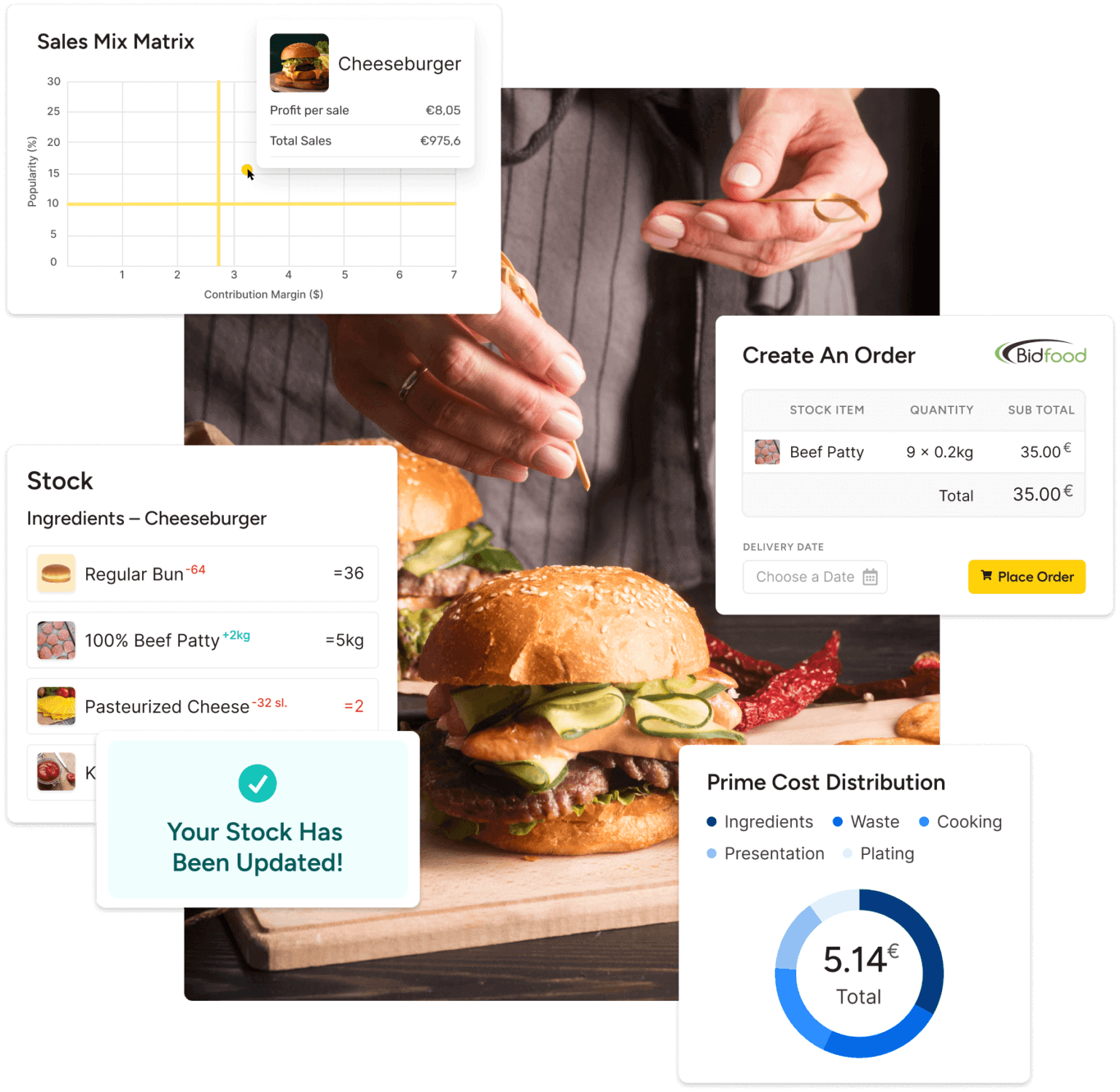F&B Management Platform For Multi-Site Operations
Manage Your Recipes, Purchasing, Inventory and Analytics All in One Place
Apicbase gives you the tools and data to drive operational excellence across your restaurants, so you can:
- Increase profitability
- Elevate customer experience
- Grow sustainably
- Ensure regulatory compliance

Trusted By
Your Data-Driven Control Centre
Empower your teams with easy to use tools to increase efficiency and optimise costs
Operational Excellence
Deliver a seamless and consistent dining experience across all locations while driving organisational efficiency.
Reduce Costs
Be empowered to optimise resources, driving substantial cost savings and maintaining exemplary quality standards.
Improve Food Safety
Integrate robust health and safety measures, enhancing the rigor of checks and control over food quality and safety.
Grow Sustainable
Adopt sustainable practices, manage waste efficiently, and make environmentally conscious sourcing decisions.
The 2024 Restaurant Industry Report
👆 No forms, no fuss. Click to get your copy instantly.

Download now
The 2024 Restaurant Industry Report
Read how successful restaurant leaders are tackling challenges in the foodservice industry.
👆 No forms, no fuss. Click to get your copy instantly.



Designed for sustainable growth in food service
Apicbase is the backbone of your back of house operations, however large. It centralises all crucial F&B data and provides insights into processes that impact profitability, including menu engineering, inventory management, and procurement. Additionally, it helps to reduce the workload for staff and management through automation.
WITH INSIGHTS FROM

APICBASE PODCAST
The Food Service
Growth Show
Carl Jacobs, CEO and co-founder of Apicbase, talks to restaurant leaders and experts about the keys to success in foodservice.
Your success is our mission
Our customer success team has onboarded hundreds of food service enterprises. They are here to help your teams maximise success.




